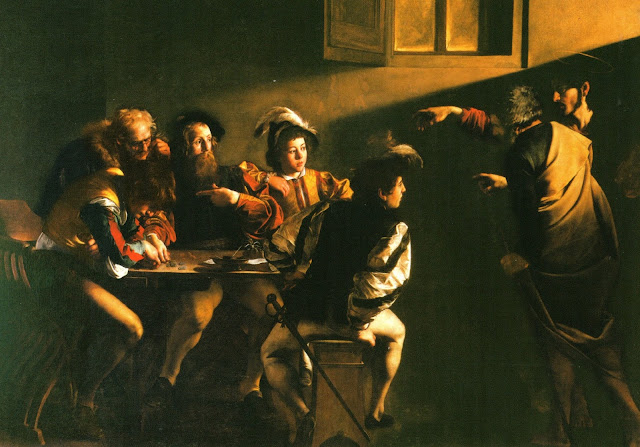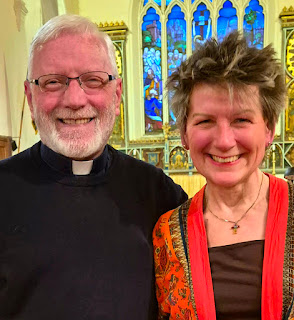Holiness of the Imperfect
At a meeting on the new Parish that will be established in November, I was struck by the fact that most of the questions and discussions focused on finance and structure, matters for which there are no adequate answers yet. Not yet.
My attention went in the direction of inspiration, specifically on what Bishop Richard refers to as “communities of saints.” This is what we are called to become, though becoming saints is probably the farthest thing from most people’s minds, engrossed as we are in the throes of daily living.
From childhood I have been drawn to the idea of holiness, the call of God in the Bible when He says, “be holy, for I the Lord am holy.” (Leviticus 21:8 and 1 Peter 1:16) Becoming holy and becoming saints are the same thing.
For centuries in the Church, it was thought that, in order to become holy, one had to become a priest, a nun, a brother, a monk or a hermit. These were the vocations of saints yet when you look at the Bible, the very first vocation mentioned is to marriage – “a man leaves his father and mother and joins himself to his wife, and they become one body.” (Genesis 1), a union emphasised by Jesus in Mark 10, “from the beginning of creation God made them male and female. This is why a man must leave father and mother, and the two become one body. They are no longer two, therefore, but one body.” A truth that is often only understood when death takes a spouse away. So often the widowed will say that they have lost part of themselves, an irreplaceable part, even if God does come to make His home in every experience of emptiness and loss.
This union of man and woman reflects something of the reality of God in a way that no other vocation can. The unity of God’s own life, the unity of Love in the Blessed Trinity, this self-surrendering Love is reflected uniquely in the “one body” of the married couple. They are together an icon of God in a way that a priest can never be and in this is their sanctity, their holiness. All other vocations flow from this.
It is the holiness of the imperfect, the sanctity of the earthen vessel that contains a glory not its own but the glory of God.
We in our time are obsessed with perfection, having everything just right, demanding of ourselves and others what is unreal and unreasonable. And these expectations are a real threat to the stability and unity of many relationships, often resulting in the breakdown of the relationship. Breakdown has almost become the rule rather than the exception.
Yet even what is broken becomes the context of God’s saving grace. The “broken bits”, the fragments that remain are gathered to Jesus so that nothing is wasted, nothing completely lost. (John 6)
The second vocation in the Book of Genesis is the call to “increase and multiply”, the vocation of parent, and this too reflects God in a most unique way. The holiness of motherhood and fatherhood is very, very precious and it is a holiness that I as a priest will never know.
But I witness it and am uplifted by seeing it at work in mums and dads as they enfold their child in their arms, an enfolding that represents the blessed embrace of Jesus in Mark chapter ten. It is a holiness that permeates every aspect of their lives, including endless sleepless nights, the messiness of nappies as well as the playful joys of seeing a child grow and develop.
Children are the fruits of the holiness of marriage, and they are central to the teaching of Jesus. Time and again He sets the child before us as the example of what the Kingdom of God means. They are to be cherished in their central place, and they are to be learned from. We are called to learn from them to have open, trustful hearts in the presence of God; to be vulnerable in God’s arms; to be teachable, capable of learning. And this is one of the pitfalls of adulthood, that we stop learning, think we know enough and become “unteachable”, a state of being referred to by Jesus in the Gospel.
And it’s not just little babies or cute toddlers that we must learn from but also adolescent children, as they must learn from our lived experience. These are the ones who have an eye for authenticity and sometimes we have to struggle with them in their quest for meaning and independence. There is a treasure in this struggle, often hidden behind the veil of its unpleasantness.
Highlighting the holiness, the sanctity of these first vocations does not mean that marriage and family are better or superior to other vocations, but they are the first given to us by God.
We who are ordained, consecrated or given to the single life, in our interior lives and in the variety of our relationships, we are icons of God in our own distinctive ways, giving expression to the multitude of ways in which He is present among His people, at home in this world that is His creation.
The sanctity of friendship is beautifully expressed by St. Gregory Nazianzen - writing of his friendship with St. Basil the Great he says, “we seemed to be two bodies with a single spirit.” A unity in love that is also reflective of the reality of who God is and a path to holiness that is offered to everyone.




.jpg)


.jpg)



Beautiful, powerful, and very comforting for every struggling spouses and parents, great to be reminded of our vocation!
ReplyDelete